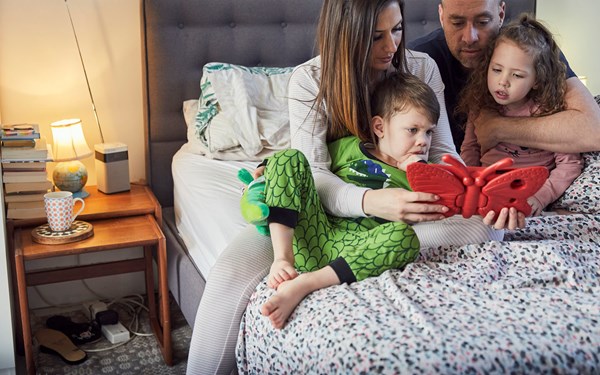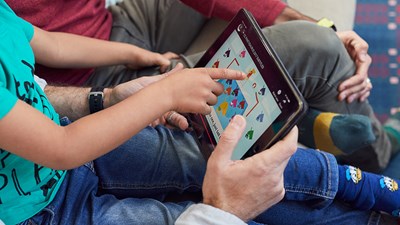Dealing with different safety concerns
The Child Exploitation and Online Protection Command (CEOP) helps keep children safe from online grooming. CEOP is part of the police service and sits within the National Crime Agency. If you suspect an adult is communicating with a child inappropriately, or a child is being sexually abused online, you should report this to the CEOP.
CEOP have a reporting page, as well as resources on their website to help keep children safe online.
Sometimes, innocent searches can lead to not so innocent results. If you come across an indecent image of a child online, it is important to report this to the Internet Watch Foundation (IWF) so that they can review this content. Some nude images of children are classed as Child Sexual Abuse material. If it is illegal, the IWF will take steps to take this down and safeguard the child.
The IWF’s reporting portal can be used anonymously.
If nude images of your child are shared online:
If you know a young person who has had a sexual image or video of themselves shared online, and they’re under 18, talk to them about Childline and the Internet Watch Foundation's Report Remove tool.
It allows young people to discreetly report a nude image or video shared online, to see if it’s possible to get it taken down. Young people can get support from Childline throughout the process. They just need to follow 3 steps:
- Follow the instructions to prove their age. They may need ID for this.
- Log into or create a Childline account so they can receive updates on their report.
- Report and remove: the IWF will review it and work to have it removed if it breaks the law.
You can also see advice on how to support a child dealing with pressure to share nudes on our sexting page, and read information for parents about Report Remove.
Online games are a great way for children to have fun and connect with friends, though sometimes gaming can go wrong and abuse can occur on these platforms.
If you have concerns that a child is being groomed through an online game, you can report this to CEOP.
If you are concerned about other types of abuse via online gaming, Cybersmile has a Gaming Help Centre, where you can find:
- In-game reporting systems for some of the most popular games
- Reporting systems of game platforms, outside of the game
- Cybersmile’s Global Support Service – this can be used to get advice on online gaming related issues
Remember, if you’re worried that a child is being abused, or at risk of being abused, you should contact the NSPCC helpline for advice, as the Global Support Service can have a long waiting list.
If you have concerns that the content in a game is inappropriate for its PEGI rating, you can raise this with the Video Standards Council by contacting them here.
Online content which incites hatred should be reported to True Vision at report-it.org.uk which covers the grounds of race, religion, disability, sexual orientation or gender. This content should also be reported directly to the platform on which it appears.
For other forms of online abuse and harmful content, such as bullying, threats, or self-harm and suicide content, you can report this directly to the platform where the abuse took place. This also includes content designed to impersonate someone else (e.g. creating a fake account pretending to be someone else). It is a good idea to take screenshots so you can share this with the platform if needed. Report Harmful Content can walk you through the reporting process for many popular sites.
If the content has remained online or the platform has not taken appropriate action, you can report this to Report Harmful Content. They will look into the issue and ensure the correct processes have been followed, and advise you on what steps you can take next.
If you see an inappropriate online advert, you can report this to the Advertising Standards Agency (ASA).
If you see online television content that you think is inappropriate, you can report this to Ofcom.
You can report terrorism-related content to the police’s Counter Terrorism Internet Referral Unit at gov.uk/report-terrorism.
You can get further information on what to do if you come across terrorism-related content, or have suspicions about a person relating to terrorism, at the Action Counters Terrorism site.
If you're worried about something a child or young person may have experienced online, you can contact the NSPCC Helpline for free support and advice.
Children can contact Childline any time to get support themselves.
Childline’s Calm zone is also packed with tools and activities to help your child de-stress and discover news techniques that can support them when they’re feeling down. Young people can also talk about their worries with others on the Childline message boards.
Worried about a child?
Contact our Helpline by calling 0808 800 5000 or emailing help@NSPCC.org.uk.
Children can contact Childline any time to get support themselves.






